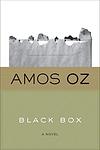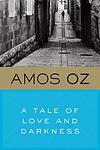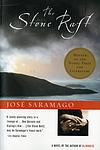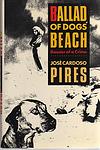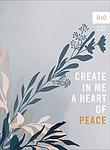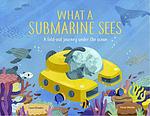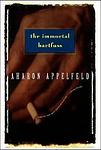The Greatest Israeli, Portuguese "Fiction" Books Since 1980
Click to learn how this list is calculated.
This list represents a comprehensive and trusted collection of the greatest books. Developed through a specialized algorithm, it brings together 300 'best of' book lists to form a definitive guide to the world's most acclaimed books. For those interested in how these books are chosen, additional details can be found on the rankings page.
Genres
Countries
Date Range
Reading Statistics
Click the button below to see how many of these books you've read!
Download
If you're interested in downloading this list as a CSV file for use in a spreadsheet application, you can easily do so by clicking the button below. Please note that to ensure a manageable file size and faster download, the CSV will include details for only the first 500 books.
Download-
1. The Book of Disquiet by Fernando Pessoa
"The Book of Disquiet" is a posthumously published collection of thoughts and musings of a solitary dreamer, who is a Lisbon-based bookkeeper. The book delves into the mind of a man who is discontented with his mundane life and finds solace in dreaming and writing. The narrative is a profound reflection on life, solitude, and the nature of humanity, filled with philosophical insights and poetic language. The protagonist's introspective journey and his struggles with existential despair make it a seminal work in the genre of literary modernism.
-
2. The Year of the Death of Ricardo Reis by José Saramago
The novel is a metaphysical narrative about a doctor named Ricardo Reis who returns to Lisbon, Portugal after learning about the death of his friend. He finds himself in a society on the brink of dictatorship, and as he navigates through his daily life, he encounters his deceased friend's ghost and a hotel maid with whom he begins a love affair. The book explores themes of identity, love, and the nature of reality, set against the backdrop of political turmoil.
-
3. Blindness by José Saramago
In this dystopian novel, an unexplained epidemic of "white blindness" sweeps through an unnamed city, causing chaos and panic. The government responds by quarantining the afflicted in an abandoned mental hospital, where conditions quickly deteriorate into violence and squalor. Amid the despair, one woman mysteriously retains her sight and guides a small band of the blind, including her husband, through the harrowing ordeal. The novel explores themes of loss, human nature, and the fragility of civilization.
-
4. Baltasar and Blimunda by José Saramago
"Baltasar and Blimunda" is a historical love story set in 18th century Portugal. The narrative follows a maimed soldier, Baltasar, and a young clairvoyant woman, Blimunda, as they navigate the hardships of life during the Inquisition. Their love story is intertwined with the construction of the Convent of Mafra, a grandiose project initiated by the King. The novel explores themes of love, faith, human resilience, and the struggle against political and religious oppression.
-
5. The Gospel According To Jesus Christ by José Saramago
This novel offers a provocative and humanized retelling of the life of Jesus Christ, diverging from traditional biblical narratives. It presents a Jesus who is all too human, grappling with the complexities of life, love, and a sense of destiny. Through a blend of biblical lore and imaginative fiction, the story explores themes of divinity, free will, and morality, challenging readers to reconsider the foundations of faith and the nature of storytelling itself. The narrative delves into Jesus's relationships, his encounters with figures such as God and the Devil, and ultimately portrays a deeply philosophical and introspective version of a figure central to Western civilization.
-
6. Fado Alexandrino by António Lobo Antunes
"Fado Alexandrino" is a complex narrative that follows the lives of four Portuguese men who meet at a dinner in Lisbon to commemorate their return from the colonial war in Mozambique ten years prior. Each man, representing different social classes, recounts his life before, during, and after the war, revealing their personal struggles and the impact of the war on their lives. The novel also reflects the political and social changes in Portugal from the dictatorship era to the revolution and its aftermath.
-
7. Black Box by Amos Oz
"Black Box" is a novel that explores the complex dynamics of a broken family. The story revolves around a divorced couple who are forced to reconnect after their son begins to display troubling behavior. The husband, a stern and disciplined judge, and the wife, a free-spirited Holocaust survivor, must navigate their personal differences, past hurts, and current relationships to address their son's issues. The book is written in the form of letters, revealing the characters' inner thoughts and struggles, making it a profound exploration of human relationships, regret, and reconciliation.
-
8. The History of the Siege of Lisbon by José Saramago
This narrative revolves around a proofreader named Raimundo Silva, who, while working on a historical text about the Siege of Lisbon, decides to alter history by adding a single word to the text, turning the factual account into a fictional one. This act of rebellion leads him into a relationship with his boss, Maria Sara, and together they explore the consequences of questioning historical facts and narratives. The story also delves into the power of language and storytelling, and the blurred lines between history and fiction.
-
9. A Tale of Love and Darkness by Amos Oz
This book is a poignant memoir that explores the complexities of love, darkness, loss, and the endurance of the human spirit. Set against the backdrop of the end of the British Mandate for Palestine and the early years of the State of Israel, the author recounts his childhood in Jerusalem, the suicide of his mother, and his path to becoming a writer. The narrative is both a personal account and a portrait of a society in turmoil, providing a profound exploration of the individual and collective psyche.
-
10. The Return Of The Caravels by António Lobo Antunes
In this novel, the ghosts of Portugal's colonial past return to haunt the present, as the caravels from the age of exploration sail back into the Tagus River, bringing with them the historical figures from the 15th and 16th centuries. The narrative weaves together the lives of these returned explorers with those of contemporary Lisbon's denizens, blurring the lines between past and present. Through a series of interconnected stories, the book explores themes of identity, nostalgia, and the complex legacy of colonialism, as characters grapple with the dissolution of the Portuguese empire and the reintegration of its former colonies, reflecting on the impact of history on individual lives and national consciousness.
-
11. Treaty Of The Soul's Passions by António Lobo Antunes
"Treaty of the Soul's Passions" is a profound exploration of human emotions and the complexities of the inner self. Through a series of interconnected stories and reflections, the narrative delves into the depths of love, despair, joy, and suffering, painting a vivid picture of the human condition. The author masterfully weaves a tapestry of characters and experiences, each revealing different facets of the soul's journey through life. With poetic language and rich psychological insight, the book invites readers to confront their own passions and question the nature of existence itself.
-
12. Karingana Ua Karingana by José Craveirinha
"Karingana Ua Karingana" is a collection of poetry that delves into the rich cultural heritage and history of Mozambique. Through vivid and evocative imagery, the author explores themes of love, loss, and the struggles faced by the people of his country. Craveirinha's powerful and poignant verses offer a glimpse into the complexities of Mozambican society, while also celebrating its resilience and beauty.
-
13. Twilight And Other Stories by Shulamith Hareven
"Twilight and Other Stories" is a collection of evocative short stories that delve into the complexities of human experience, exploring themes of love, loss, identity, and the passage of time. The narratives, set against diverse backdrops, from ancient times to modern-day Israel, weave together a tapestry of characters each confronting their own moral dilemmas and emotional struggles. With a poetic and introspective style, the stories in this anthology invite readers to reflect on the subtle shades of humanity and the profound impact of seemingly ordinary moments.
-
14. The Stone Raft by José Saramago
In this surreal exploration, the Iberian Peninsula breaks off from the rest of Europe and begins to drift across the Atlantic Ocean. As the governments and international community scramble to understand and respond to the phenomenon, five disparate individuals find themselves drawn together on a journey across the newly isolated landscape. Through their experiences and interactions, the narrative explores themes of identity, nationality, and the arbitrary nature of borders.
-
15. Terra Sonâmbula by Mia Couto
"Terra Sonâmbula" by Mia Couto is a captivating novel set in war-torn Mozambique, where two individuals, a young boy and an old man, cross paths and embark on a journey that intertwines their lives. Through their encounters with other characters and their shared experiences, the book explores themes of loss, displacement, and the power of storytelling to heal and provide hope in the face of adversity. The lyrical prose and magical realism elements create a rich and evocative narrative that immerses readers in the complex and haunting world of post-colonial Mozambique.
-
16. Cain by José Saramago
The novel explores the biblical story of Cain and Abel from the perspective of Cain, after he murdered his brother. The author reimagines the Old Testament by having Cain time travel to key events and interact with biblical figures such as Noah and Abraham, challenging the traditional interpretations of morality, justice, and faith. Cain's journey reveals a critical view of God and the paradoxes of the human condition.
-
17. Arabesques by Anton Shammas
"Arabesques" is a novel that intricately blends autobiography, fiction, and historical narrative to explore the complexities of identity and heritage. Set primarily in the Arab village of Fassuta in northern Israel, the story delves into the life of the narrator and his extended family, tracing their roots and experiences across generations and borders. Through a tapestry of memories, stories, and shifting perspectives, the novel examines themes of displacement, belonging, and the cultural and political tensions in the Middle East, all while challenging the boundaries between history and memory, and truth and fiction.
-
18. Ballad Of Dogs' Beach by José Cardoso Pires
The book is a gripping narrative that delves into the political and social turmoil of Portugal during the 1960s, as seen through the lens of a mysterious crime. When a body washes up on a beach near Lisbon, the ensuing investigation exposes the dark undercurrents of a society under a repressive regime. The story weaves together the perspectives of various characters, including those in power and ordinary citizens, to create a tapestry of intrigue and resistance. The novel's exploration of memory, identity, and the struggle for justice serves as a poignant commentary on the human condition amidst political oppression.
-
19. A Late Divorce by A. B. Yehoshua
The novel delves into the complexities of family dynamics and personal identity through the lens of an Israeli family facing the impending divorce of the elderly parents. As the estranged father returns from America to finalize the divorce, the reunion with his adult children and their mother in Israel brings to the surface long-simmering tensions, secrets, and unresolved emotional conflicts. Set against the backdrop of Passover, the narrative unfolds in a series of perspectives from each family member, revealing the intricate web of relationships and the individual struggles within the family unit. The story examines themes of love, betrayal, and the search for self amidst the trials of familial obligations and societal expectations.
-
20. A Perfect Peace by Amos Oz
Set against the backdrop of a kibbutz in Israel during the 1960s, the novel delves into the life of a young man struggling with the expectations of his family and community. As he grapples with his own desires and the looming specter of war, the protagonist embarks on a journey of self-discovery that leads him away from the communal life of the kibbutz. The narrative explores themes of individuality, freedom, and the complexities of human relationships, all while painting a vivid portrait of Israeli society during a time of tension and change.
-
21. See Under by David Grossman
The book is a profound exploration of the complexities of human relationships and the journey of self-discovery. Through the eyes of a young boy, the narrative delves into the intricacies of family dynamics, the pain of loss, and the quest for identity. As the protagonist embarks on a search for his missing father, he encounters a series of enigmatic clues that lead him to confront the harsh realities of adulthood and the secrets that adults keep hidden. The story is a poignant reflection on the transition from childhood innocence to the understanding of the adult world, and the ways in which our loved ones shape our perception of ourselves and our place in the world.
-
22. Always Astonished by Fernando Pessoa
"Always Astonished" is a collection of writings that offers a glimpse into the profound and often perplexing musings of its author, a renowned literary figure known for his philosophical insights and multiple writing personas. The book is a compilation of texts that span various genres, including poetry, prose, and philosophical reflections. It captures the author's unique ability to delve into the complexities of the human soul, existential angst, and the search for meaning in a seemingly indifferent universe. Through a series of contemplative and often contradictory voices, the work invites readers to confront the enigmatic nature of existence and the eternal quest for self-discovery and astonishment at the world.
-
23. The Immortal Bartfuss by Aharon Appelfeld
The book is a poignant exploration of the life of a Holocaust survivor grappling with the weight of his past and the struggle to find meaning in the aftermath of unimaginable trauma. The protagonist, a man who has outlived the horrors of a Nazi concentration camp, finds himself in a small Israeli town, where he is haunted by memories and the loss of his family. His survival comes with the burden of guilt and the challenge of reconnecting with a world that has been irrevocably changed. Through his journey, the narrative delves into themes of memory, identity, and the complex process of healing from psychological scars, offering a stark examination of the enduring impact of the Holocaust on individual lives.
-
24. His Daughter by Yoram Kaniuk
The novel explores the complexities of identity, memory, and the human condition through the story of a man who, after losing his daughter to a tragic accident, becomes obsessed with a young woman he believes to be her reincarnation. As he delves deeper into this conviction, his life intertwines with those of Holocaust survivors and the young woman's own troubled past, revealing a tapestry of narratives that question the nature of truth, the weight of history, and the possibility of redemption amidst profound loss. The narrative weaves together personal and collective histories, creating a poignant meditation on grief and the enduring impact of trauma across generations.
-
25. A Horse Walks Into A Bar by David Grossman
In this novel, a stand-up comedian, during a performance in a small Israeli city, veers from his routine into a confessional monologue. Throughout the evening, he reveals layers of his troubled past, including childhood traumas and a complex relationship with his parents, to a mixed audience that includes figures from his own history. The narrative unfolds as a blend of dark humor and poignant drama, exploring themes of memory, pain, and the redemptive power of storytelling. As the comedian's act progresses, the audience's reactions shift from amusement to discomfort to intense engagement, mirroring the emotional journey he compels them to take with him.
Reading Statistics
Click the button below to see how many of these books you've read!
Download
If you're interested in downloading this list as a CSV file for use in a spreadsheet application, you can easily do so by clicking the button below. Please note that to ensure a manageable file size and faster download, the CSV will include details for only the first 500 books.
Download





